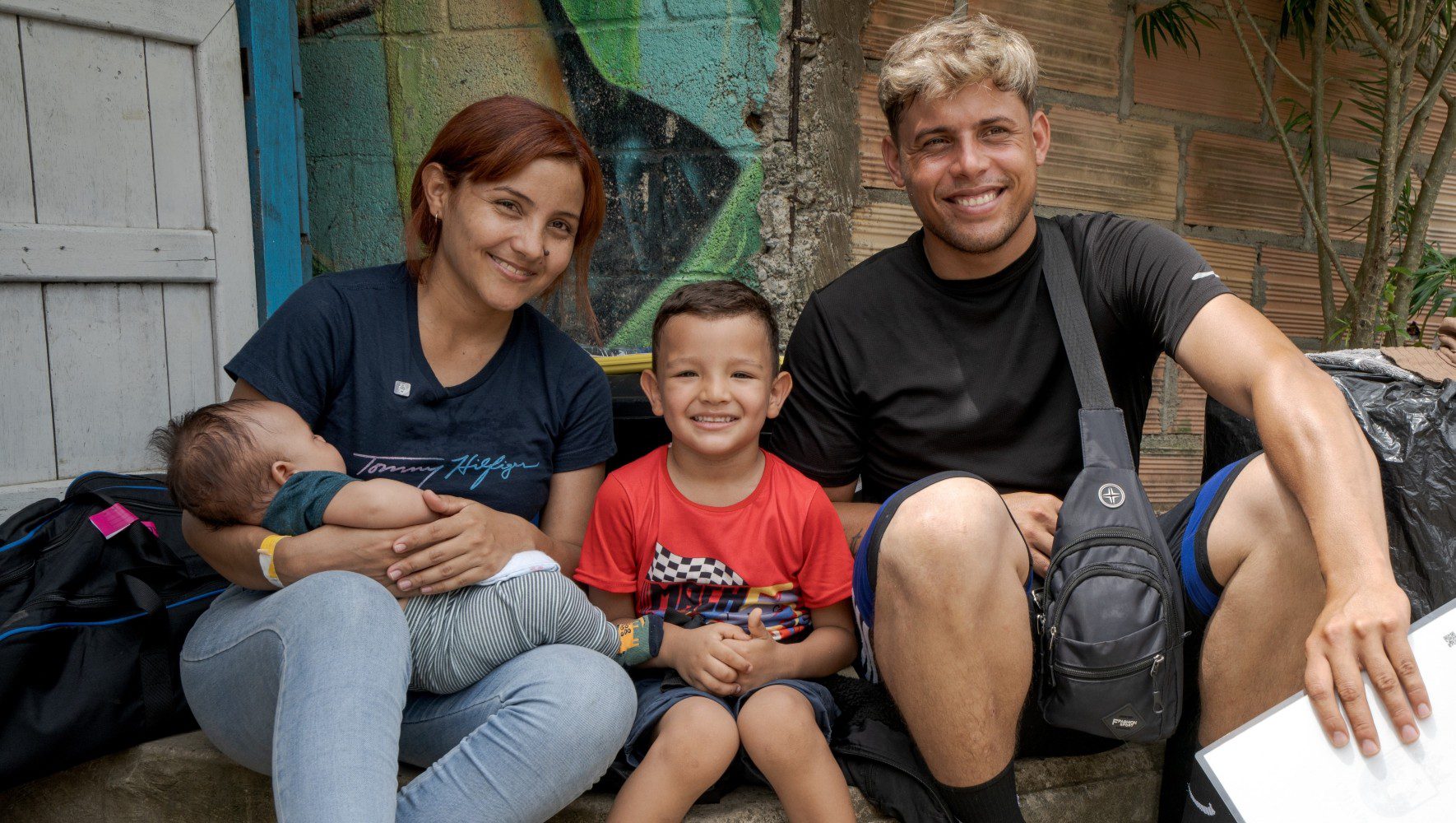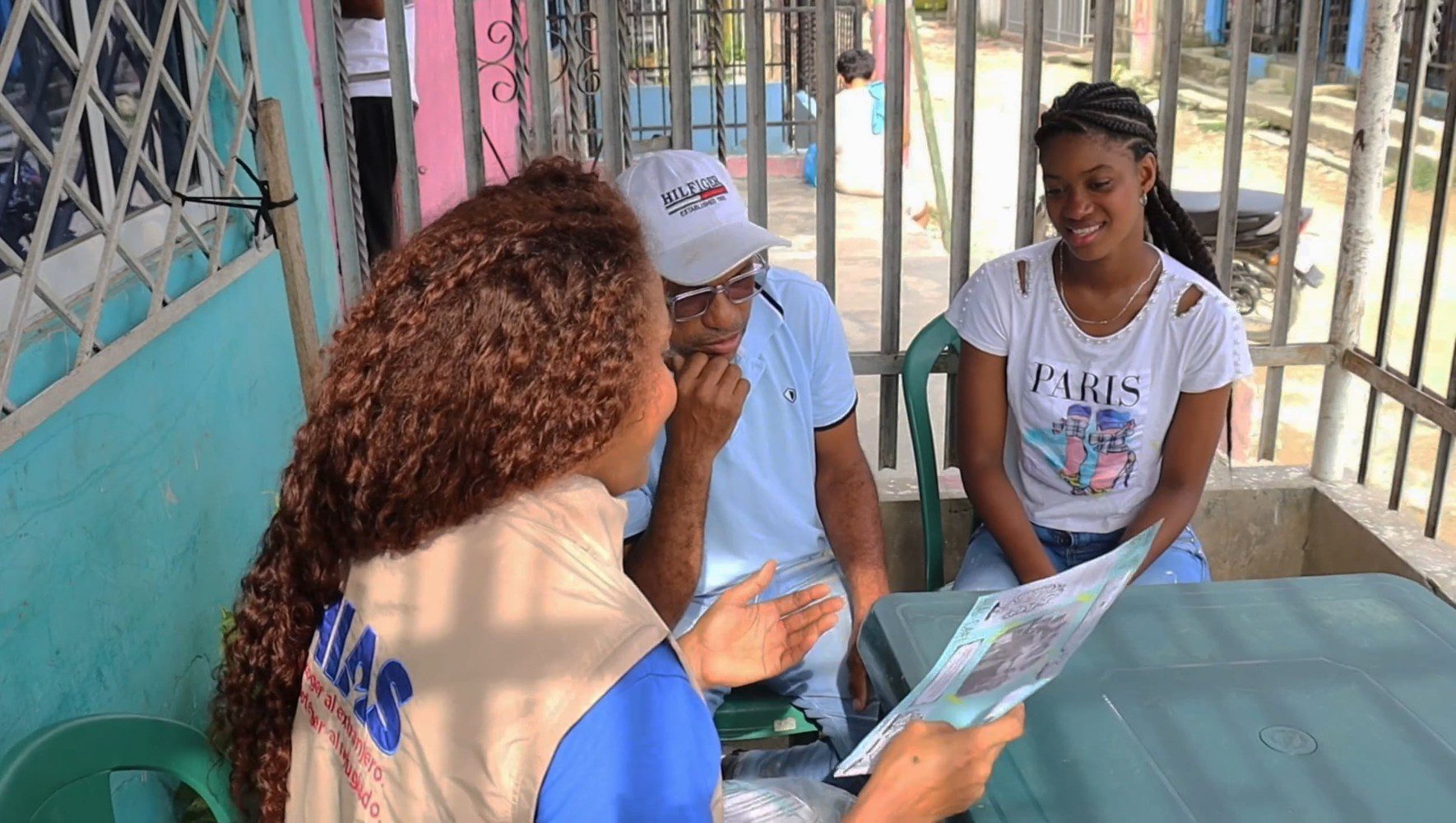Support, and Song, Helps Refugees Heal in Ecuador
Jul 02, 2015
I’m leaving this place, I’m not coming back.
Hearing rumors
That there are flames here, man.
These are the opening lines of a song called “the Sound of the Refugee”. The young people who wrote it are all refugees themselves. The beat is danceable and the video is very well made, but underneath it all is the thing they all share: displacement.
I’m not coming back (But someday)
I’m leaving this place (I want to go back)
Daniel* showed me this video a few weeks ago when I visited his family’s home in Ecuador. He’s the one in the dark t-shirt, playing the drums with a look of quiet concentration.
His mother, Lorena*, graciously welcomed us to the apartment she shares with both Daniel and her younger sister, Daniel’s aunt.
While they are originally from Colombia, like so many other Colombian families we work with in Central America, gang violence made their life there untenable. When a local gang tried to force Daniel’s older brother to join, Lorena decided that their only choice was to flee.
After they fled, in 2010, Ecuador granted them asylum and the family began to rebuild their lives. But three years later the government abruptly decided that Lorena’s family no longer qualified, and they were told they had 15 days to return to Colombia.
Daniel’s older brother went back first, to find work and a place for the family to stay. He was murdered almost as soon as he returned to the country, by the very same gang that he fled to Ecuador to escape.
Lorena returned to Colombia to bury her son. Immediately after his funeral, she made her way back to Ecuador. This time, the government agreed to grant Lorena and her remaining family temporary asylum.
Those were dark days for Lorena. A generally cheerful person, she soon sank into a deep depression, even contemplating suicide. Fortunately, HIAS staff in Ecuador was there to help, offering her counseling and support, and connecting her with a trained psychiatrist.
Crucially, this support has remained available to Lorena even as she improves. Her psychologist, Cesar Torres, accompanied me on my visit to Lorena and Daniel’s home. As she told me her story, she kept referring to Cesar and how important he has been in their lives. She credits him with getting her from the depths of despair to a place where she could see hope.
As her mental and emotional state improved, HIAS provided a modest loan to help Lorena establish a small business. She used the money to set up a food cart and was able to earn enough money to keep her family going. She has since expanded her business and is now a popular cook in a nearby restaurant.
Daniel is working, too. He found a job in construction. And he has the band. The hope is that this music will provide him with a creative outlet, as well as a support network. Watching them dance, sing and make music together in their music video, it seems to be working.
Daniel and Lorena are not alone. There are currently 75,000 Colombian refugees and asylum seekers in Ecuador. Dedicated HIAS staff, like Cesar, do what they can to help. For this family, that help made a real difference. Most recently, with HIAS’ help, Lorena has applied for permanent resettlement to the United States. It’s a lengthy process, but we’ll be there to guide them every step of the way.
Like so many refugee stories, Lorena and Daniel’s story is filled with both hardship, and hope. Their resilience, strength and commitment to family are truly inspiring. As they say in Daniel’s song: “I’m leaving searching for another life, I’m looking for another love. I only bring my joy, I come from Colombia.”
* Names have been changed to protect the family’s privacy.



